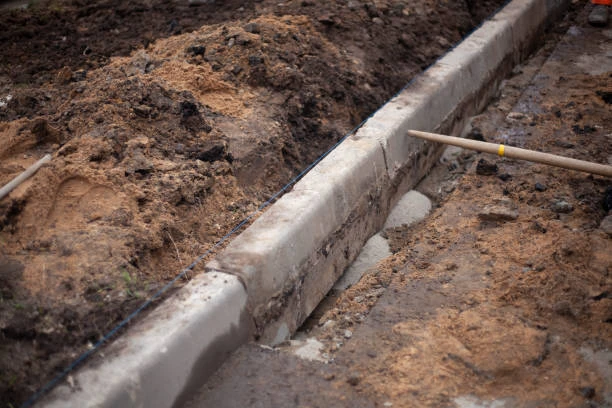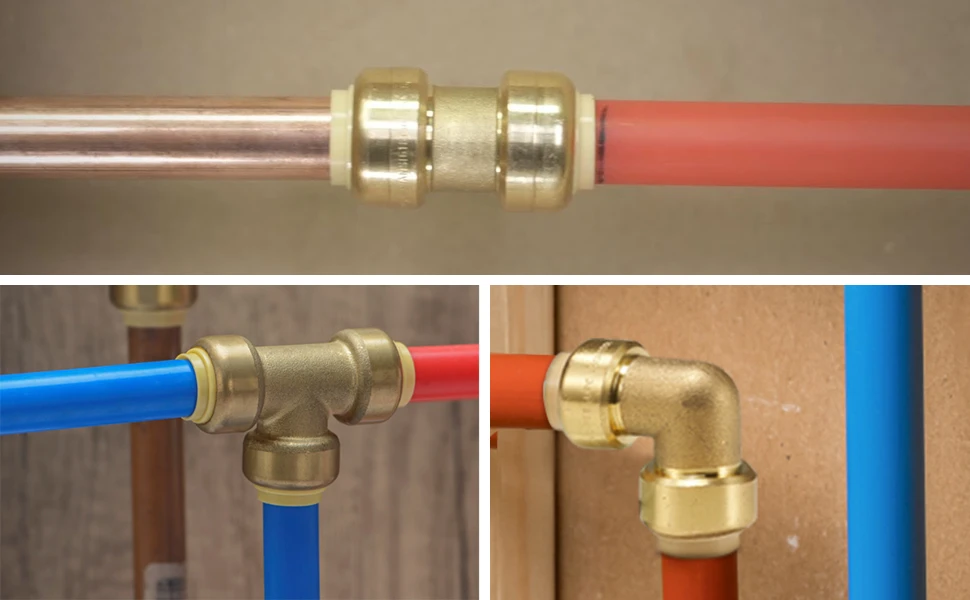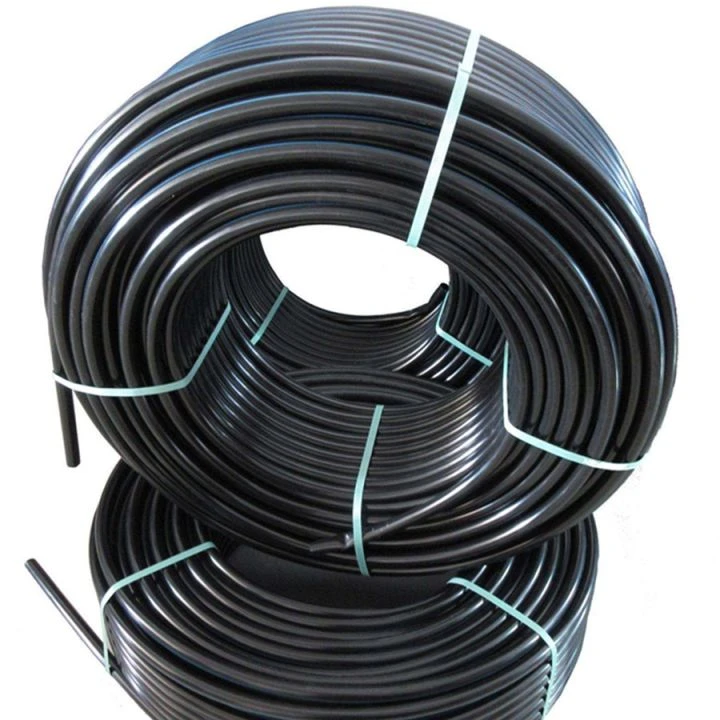In an era where environmental sustainability is at the forefront of industry practices, Redemption Oilfield has made significant strides in enhancing its operations through the recycling of high-density polyethylene HDPE pipe. This initiative not only reflects the company’s commitment to reducing waste but also highlights the numerous advantages of HDPE in oilfield operations. In this article, we will delve into the details of Redemption Oilfield’s recycling efforts, the benefits of HDPE pipes, and the broader implications for the oil and gas industry.

Understanding HDPE Pipe
High-density polyethylene (HDPE) pipe is a popular choice in various industries, including oil and gas, due to its unique properties. HDPE pipes are known for their durability, flexibility, and resistance to corrosion, making them ideal for transporting fluids in challenging environments.
Key Properties of HDPE Pipe
- Durability: HDPE pipes are highly resistant to impact and can withstand extreme temperatures, making them suitable for various applications.
- Chemical Resistance: HDPE is impervious to many chemicals, ensuring the safe transportation of a wide range of substances without degradation.
- Lightweight: The lightweight nature of HDPE pipes simplifies handling and installation, reducing labor costs and time.
- Flexibility: HDPE pipes can be easily bent and manipulated, allowing for efficient installation in diverse environments.
- Recyclability: One of the most significant advantages of HDPE is that it is fully recyclable, reducing environmental impact and promoting sustainable practices.
The Challenge of HDPE pipe Waste Management in the Oilfield
In the oil and gas industry, managing waste effectively is a critical concern. Traditional practices often lead to the disposal of materials like HDPE pipes in landfills, contributing to environmental degradation. As the industry faces increasing scrutiny regarding its environmental impact, companies are seeking innovative solutions to minimize waste and promote sustainability.
HDPE pipe Redemption Oilfield’s Commitment to Sustainability
Redemption Oilfield has recognized the need for sustainable practices and has taken significant steps to address waste management through the recycling of poly HDPE pipe. This initiative reflects a broader commitment to environmental stewardship and operational efficiency.
HDPE pipe The Recycling Process
The recycling of HDPE pipe at Redemption Oilfield involves several key steps:
1. HDPE pipe Collection and Sorting
The first step in the recycling process is the collection of used HDPE pipes from various operational sites. These pipes are sorted based on their condition and size, ensuring that only suitable materials are sent for recycling.
2. HDPE pipe Cleaning
Once collected, the HDPE pipes undergo a thorough cleaning process. This is essential to remove any contaminants, such as oil, dirt, or chemicals, which could compromise the quality of the recycled material. Cleaning ensures that the recycled HDPE retains its properties and can be used effectively in new applications.
3.HDPE pipe Shredding
After cleaning, the HDPE pipes are shredded into smaller pieces. This step reduces the material size, making it easier to process and recycle. Shredding also increases the surface area, enhancing the efficiency of subsequent processing steps.
4. HDPE pipe Extrusion
The shredded HDPE is then melted and extruded into new forms. This process allows the material to be reshaped into new products, including pipes, fittings, and other applications. The extrusion process is highly efficient, and the resulting material retains the beneficial properties of HDPE.
5. HDPE pipe Quality Control
Throughout the recycling process, quality control measures are implemented to ensure that the recycled HDPE meets industry standards. This involves testing the material for strength, flexibility, and chemical resistance to ensure it can be safely used in new applications.
Benefits of Recycling HDPE Pipe
Redemption Oilfield’s recycling initiative offers numerous benefits, both for the company and the environment:
1. Waste Reduction
By recycling HDPE pipes, Redemption Oilfield significantly reduces the amount of waste generated during operations. This not only minimizes landfill use but also lessens the overall environmental footprint of the company.
2. Cost Savings
Recycling HDPE can lead to substantial cost savings for the company. By reusing materials, Redemption Oilfield can reduce its reliance on new pipe production, lowering procurement costs and minimizing waste disposal fees.
3. Sustainable Practices
The recycling initiative aligns with broader industry trends toward sustainability. As consumers and regulators increasingly demand environmentally responsible practices, Redemption Oilfield’s efforts position the company as a leader in the transition to sustainable operations.
4. Resource Conservation
Recycling HDPE conserves valuable resources by reducing the need for virgin materials. This contributes to a more sustainable supply chain and lessens the environmental impact associated with new material production.
5. Improved Community Relations
By actively engaging in recycling and sustainability efforts, Redemption Oilfield enhances its reputation within the community. This commitment to environmental stewardship can foster positive relationships with stakeholders and the public.
Industry Implications
The success of Redemption Oilfield’s recycling initiative has broader implications for the oil and gas industry as a whole:
1. Encouraging Industry-Wide Adoption
As more companies recognize the benefits of recycling HDPE, there may be a shift toward industry-wide adoption of similar practices. This can lead to a collective effort to reduce waste and promote sustainability across the sector.
2. Advancements in Recycling Technologies
The increased demand for recycled HDPE may drive advancements in recycling technologies. As companies seek to improve efficiency and quality, innovations in recycling processes can emerge, further enhancing the viability of recycled materials.
3. Regulatory Support
Government regulations are increasingly focusing on waste management and sustainability practices. Successful recycling initiatives like that of Redemption Oilfield can serve as a model for regulatory frameworks, encouraging more companies to adopt sustainable practices.
4. Collaboration Opportunities
The success of recycling efforts may lead to collaboration between companies, local governments, and environmental organizations. Such partnerships can create innovative solutions for waste management and sustainability challenges.
Future of HDPE Pipe Recycling
The future of HDPE pipe recycling looks promising, especially as industries continue to prioritize sustainability. Key trends to watch include:
1. Increased Recyclability
Advancements in materials science may lead to the development of even more recyclable forms of HDPE. This would further enhance the sustainability of the material and expand its applications.
2. Growth of Circular Economy
As industries move toward a circular economy model, recycling HDPE will become an integral part of the supply chain. This shift will promote resource conservation and reduce waste generation.
3. Greater Industry Collaboration
As awareness of the importance of recycling grows, expect to see greater collaboration between companies and stakeholders to develop best practices and innovative solutions for recycling HDPE and other materials.
Conclusion
Redemption Oilfield’s initiative to recycle poly HDPE pipe not only demonstrates the company’s commitment to sustainability but also sets a precedent for the oil and gas industry. By reducing waste, conserving resources, and promoting sustainable practices, Redemption Oilfield is paving the way for a greener future. As the industry continues to evolve, the lessons learned from this initiative will likely inspire more companies to embrace recycling and environmental stewardship.
Frequently Asked Questions (FAQs)
1. What are HDPE pipes used for in the oilfield? HDPE pipes are used in the oilfield for transporting various fluids, including water, oil, and gas, due to their durability and chemical resistance.
2. How does recycling HDPE pipes benefit the environment? Recycling HDPE pipes reduces landfill waste, conserves resources, and lowers the environmental impact associated with new material production.
3. Can recycled HDPE be use to make new pipes? Yes, recycled HDPE can be remolde and extruded to create new pipes and fittings, retaining its beneficial properties.
4. What is the process of recycling HDPE pipes? The recycling process involves collection, cleaning, shredding, extrusion, and quality control to ensure the recycled material meets industry standards.
5. Why is HDPE preferre over other materials in the oilfield? HDPE is preferre due to its durability, lightweight nature, chemical resistance, and flexibility, making it ideal for various oilfield applications.


















